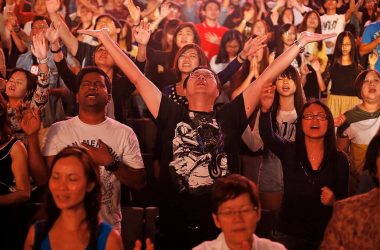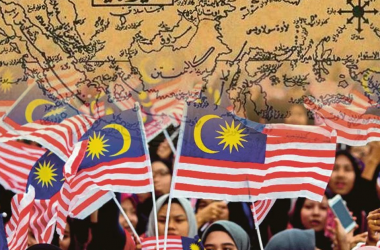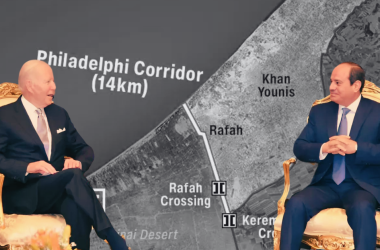As tensions continue to rise in the Middle East, Iran faces a critical strategic dilemma: does the potential cost of escalation outweigh the benefits of de-escalation? This question has become increasingly relevant as the situation grows more complex and fraught with risk. For Iran, the stakes are high, and every decision carries profound consequences.
Why Does Netanyahu Want a Regional War?
Israeli Prime Minister Benjamin Netanyahu has been accused of pushing for a regional war, but why? Some argue that Netanyahu’s motivations are driven by personal interests, seeking to prolong the conflict for political gain. For Israel, the continuous supply of ammunition and military support from the United States is a lifeline. Without this backing, Israel’s military capabilities would be significantly diminished, potentially making the country vulnerable within just a few days. This reliance on U.S. support underscores the strategic importance of maintaining a state of conflict, which guarantees the flow of American aid.
The Symbolism of Haniyeh’s Killing in Tehran
The killing of Ismail Haniyeh, a prominent Palestinian leader, in Tehran by Israeli forces carries deep symbolic weight. It is a bold statement by Israel, demonstrating its ability to eliminate enemies regardless of their location. For Iran, this incident is a stark reminder of its vulnerability; the fact that such an assassination could occur within its borders highlights Tehran’s inability to protect its allies. This not only weakens Iran’s position in the region but also damages its reputation as a protector of its partners.
Israel or Iran: Who Holds Deterrence?
The struggle for deterrence between Israel and Iran is at the heart of the ongoing conflict. Iran is eager to restore its deterrent power but is acutely aware of the risks associated with igniting a regional war — a conflict whose consequences it cannot fully predict or control. Complicating matters further, Iran cannot rely on the United States, particularly with President Biden seemingly unable to rein in Netanyahu.
Internally, Iran faces numerous crises, including growing dissatisfaction among its allies, who feel that Iran’s strategy of restraint is holding them back. For instance, the Houthis’ recent attacks on Israel occurred against Iran’s wishes, illustrating the potential loss of control over its proxies. Iran is also wary of direct confrontation with the United States, recognizing that such a conflict would be suicidal in the short to medium term. The threat from the U.S. alone is not enough to force Iran’s hand; what Tehran seeks is something more strategic, such as a ceasefire that would benefit not just Gaza but also Lebanon. However, Iran’s image is deteriorating among its partners, who fear that Tehran is losing its leverage and influence.
The Risk of Iran Losing Control of Its Proxies and Allies
Iran’s network of allies and proxies across the region has long been a cornerstone of its strategy. However, this network is far from monolithic. Different militias have different motivations, and the narrative that they are fully controlled by Iran is not entirely accurate. This diversity within Iran’s proxy forces poses a risk: as Tehran’s influence wanes, these groups may pursue their own agendas, potentially destabilizing the region further and undermining Iran’s strategic objectives.
The Profile of Iran’s New President
As Iran’s political landscape evolves, the country’s new president faces significant challenges. Chief among these is the need for sanction relief, as Iran’s economy is in dire straits. The country is in desperate need of foreign direct investment to revitalize its economy, but ongoing sanctions have made it nearly impossible to attract such investment. The new president’s ability to navigate these economic challenges while maintaining Iran’s strategic position in the region will be a key test of his leadership.
How Do Average Iranians View These Issues?
Among average Iranians, opinions on these issues are diverse and complex. Many are deeply religious and view this as a “holy war” to liberate the Al-Aqsa Mosque, while secularists may not see the current conflicts as Iran’s fight. For many Iranians, the economic crisis is the most pressing issue, overshadowing the ideological battles being waged by their leaders. The strategy of the Islamic Republic and its support for the so-called Axis of Resistance remain important, but economic concerns are paramount.
US Elections and Iranian Issues
As the United States approaches another election cycle, Iranian issues are once again becoming a focal point for American politicians. Both in the U.S. and Israel, Iran’s role in the region is being used as a political tool, with various factions seeking to leverage the situation to their advantage. For Iran, this means that its actions and decisions will be scrutinized and politicized, not just by regional powers but also by global players looking to score political points.
In conclusion, Iran’s strategic decisions in the coming months will have far-reaching implications, not only for the region but for its internal stability and global standing. The balance between escalation and de-escalation is a delicate one, and Iran must navigate this terrain carefully to avoid further isolation and conflict.
Asyraf Farique
IRIS INSTITUTE











